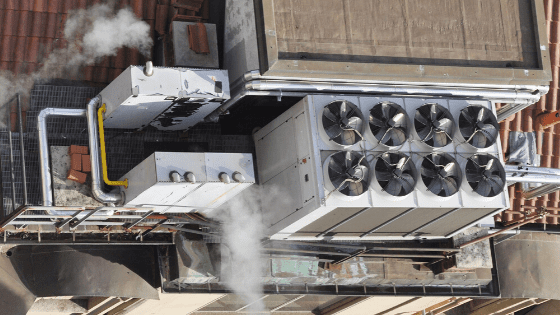 The compressor is the heart of any commercial refrigeration or cooling system.
The compressor is the heart of any commercial refrigeration or cooling system.
If the compressor is damaged, the whole system stops. Unfortunately, a compressor is vulnerable to damage from many sources. Housing a compressor in an optimal work environment is crucial. So is regular maintenance to keep it running at full capacity.
That said, compressors aren’t fragile. Not by a long shot!
Today, well-maintained compressors can usually be counted on to operate for 10-15 years. With a proactive approach to unit maintenance, that can often be extended to 20. If a unit fails, there is almost always an underlying cause that needs to be isolated.
Root cause analysis of compressor failure is essential. Once a compressor does fail, it is not always possible to fix it. Replacing a compressor is often the superior option.
While you can save money on replacement by buying a remanufactured compressor, extending the life of your unit is always the most cost-effective option around.
Most preventable compressor issues come down to these causes:
1. Dirty Compressor Coils
All in all, the condenser coils are among the most vulnerable components in a refrigeration or air conditioning system. Dirt and mineral scale can easily build up here and impact all other major components. Luckily, these can be cleaned on a regular basis to protect performance.
2. Blocked Suction Lines
Blockage in the refrigerant lines will cause any system to lose cooling efficiency. The increase in pressure and temperature will grow worse over time – this is often slow enough to go unnoticed, but it can be very rapid. Eventually, overheating causes compressor failure.
3. Low Refrigerant Charge
Holes and cracks in the refrigerant line make up a whole other category of issues. As the level gets lower, the system must work harder to pump refrigerant. This leads to a higher level of mechanical strain and vibration. In the long run, the system will fail.
4. Incorrect Suction Line Size
Experienced compressor technicians should perform all maintenance when it comes to sensitive interior parts. One problem with used compressors is the tendency for inexperienced technicians to change out leaking suction lines with replacement lines that are too small, causing failure.
5. Too Much Refrigerant
A big reason to go with fully remanufactured compressors is to ensure they are brought into line with all OEM specifications. Consulting OEM documentation should give you the right data on refrigerant type and fill level so incidental damage from improper refrigerant is prevented.
6. Electrical Issues
An electrical problem can strike throughout your facility. If your key equipment can’t get the voltage it needs, performance will be inconsistent. Your compressor may continue to run, but spikes and dips can cause significant damage in a short time if they happen often.
Electrical issues can also be internal to your compressor itself.
This becomes much more likely with age. Wiring, fuses, and contacts should be examined by compressor experts. Electrical burnout within a compressor can cause acid buildup that damages multiple components.
If you are in an older facility, be sure your electrical system is getting adequate testing and review. An infrared inspection can find hot spots that indicate weak wiring and potential fire hazards that would otherwise go unnoticed.
Also, consider connecting your compressor to a compatible emergency power system.
With an on-site generator, you could potentially maintain the operation of your compressor for health and safety. A few hours of backup power makes a world of difference.
7. Contaminants (Airborne and Otherwise)
Compressor housing provides some protection against contaminants, but it is always a good idea to maintain high sanitation standards in your space. Moisture, dirt, and debris of any kind can wreak havoc on your compressor. Follow all OEM instructions on periodically cleaning compressor exteriors.
8. Inadequate System Lubrication
Lubricant levels affect the performance of virtually all parts of your system. Likewise, it’s vital to ensure that the oil pump is operating at full efficiency. If a pump fails or a replacement pump is inadequate to the system’s needs, total compressor failure is the eventual outcome.
No matter if your compressor system is new from the OEM or a remanufactured model, any of these issues can degrade performance and cause mechanical stress. To maximize the life of your system, make adequate provisions for maintenance on a monthly, quarterly, and annual basis.
While there are some basic maintenance tasks your team can take care of in house, it’s always best to have your maintenance needs managed by compressor experts. A maintenance contract gives you an extra line of defense against unexpected problems. It ensures that minor issues are caught promptly, before they can threaten the overall functioning of the system.











